The United Nations commemorate in Stockholm, this summer, 50 years of multilateral environmental action, since the historic 1972 UN Conference on the Human Environment. On this occasion, the UN Science-Policy-Business Forum on the Environment (UN-SPBF) has convened its Fourth High-Level Global Session from 31 May- 4 June 2022.
Sessions in Berns
Since the UN Conference on the Human Environment was held in 1972, humanity has come a long way with respect to global environmental governance. More, however, needs to be done. We are faced with the triple crisis of climate change, biodiversity loss, and pollution. We are also not on track to meet many of the global environmental goals. Progress that was made was further set back by the COVID-19 pandemic and geopolitical turmoil, including the war in Ukraine.
Within the context, the fourth Global Session of the UN Science-Policy-Business Forum (UN-SPBF 2022) explored the many actions needed to achieve truly transformative change to put the world back on track to meet its goals.
In his vision setting speech, Johan Rockström, Director, Potsdam Institute for Climate Impact Research, reminded participants of the reality and urgency of the situation we find ourselves in, setting the stage for the next four days of discussions. During the discussions, participants addressed a range of issues dealing with multilateralism, including with respect to climate change, and future economic frameworks, before turning to issues that affect the daily fabric of our lives—technology, fashion, and supply chains. Leaders were also invited to share their vision for Stockholm+100.
Key messages emerging from these discussions included:
- Setting a carbon price to effectively account for emissions is needed;
- Stakeholders should collaborate and work cross-sectorally to find solutions;
- Data is crucial to effectively manage the situation we find ourselves in, as “you can’t manage what you don’t measure”;
- Technology has an important role to play, and can unlock opportunity and realize the potential of many to resolve the triple planetary crisis.
- Circular economy and planning for using recycled or recyclable materials is key; and
- Responsible mining will be crucial as an increase in critical minerals will be required for the energy transition.
![]()
![]()
The Stockholm+100 Leadership Dialogue provided a vision for the future, sharing inspiring insights, with Leaders highlighting many of the actions already being undertaken to move the needle on progress, while also calling for:
- redefining what is good enough for societies and individuals to thrive;
- policy and education to develop joint understanding;
- partnerships as key to resolving many challenges.
- the private sector to mobilize and take the lead; and
- engaging major groups and consumers to develop solutions for the crises we face.
![]()
As the world starts to gather for the Stockholm+50 commemoration, the fourth Global Session of the UN Science-Policy-Business Forum (UN-SPBF 2022) opened to discuss the transformative actions required to put the world on track to meet environmental goals. Participants traversed a wide range of topics, such as the role of multilateralism, moving beyond gross domestic product (GDP) and financing the Sustainable Development Goal (SDGs), the role of big tech, and the future of energy. These discussions explored how different sectors will help us move the needle.
High-Level Opening
Axel Threlfall, Thomson Reuters, moderated the session.
Shereen Zorba, Head of the UN-SPBF Global Secretariat, stressed the need to find ways to make international commitments translate into real transformation in a fair and equitable way.
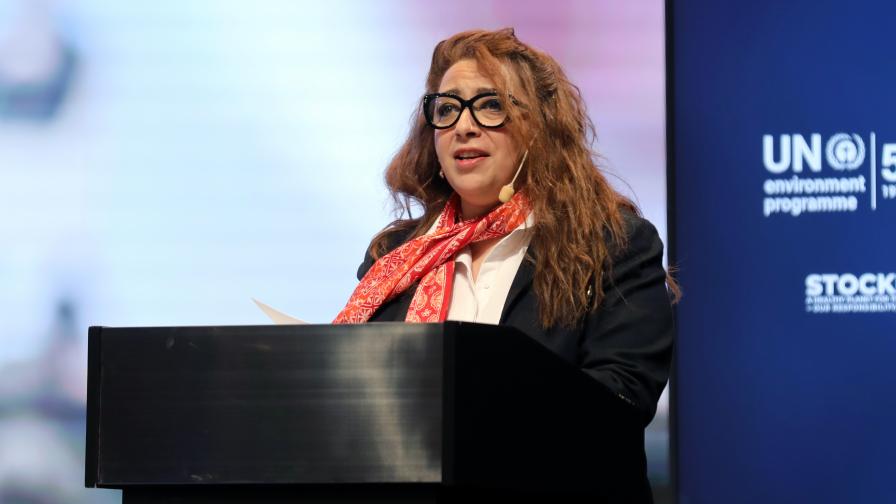
Sonja Leighton-Kone, Acting Deputy Executive Director, UN Environment Programme (UNEP), encouraged thinking about the policies, financial mechanisms, and incentives required to transform sectors and tackle the triple planetary crisis.
In a video message, Abdulla Shahid, President, 76th session of the UN General Assembly, prioritized equitable access to technology for developing countries, transition to cleaner production processes, and sustainable business practices.
Collen Vixen Kelapile, President, UN Economic and Social Council (ECOSOC), stressed the need for wise use of science and technology and equitable sharing of benefits.
Johan Rockström, Director, Potsdam Institute for Climate Impact Research, said science has provided the evidence for sustainability pathways and now it is time to deliver on the transitions needed.
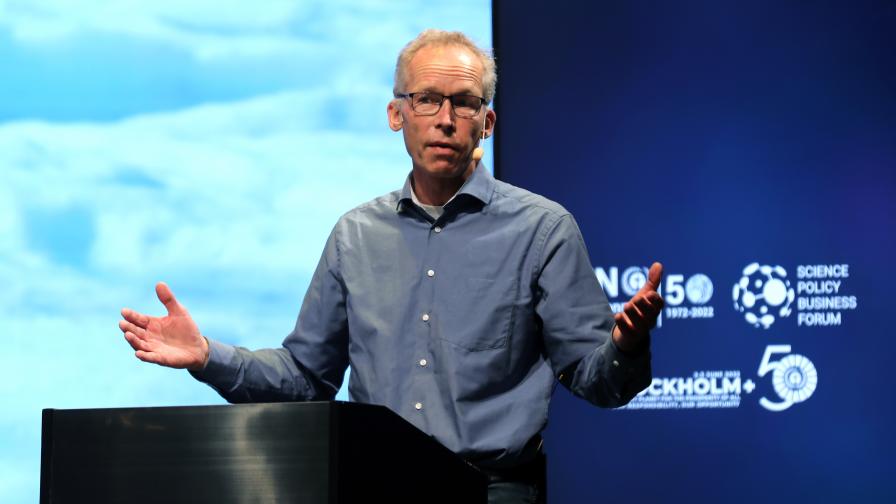
Reimagining Multilateralism and Bridging the Implementation Gap
Sébastien Treyer, Director, Institute for Sustainable Development and International Relations (IDDRI), noted challenges, including: working on the economic transformation to achieve the net zero carbon goal; and fully involving multinational corporations and civil society in the dialogue.
Maria Ivanova, Director, Center for Governance and Sustainability, University of Massachusetts Boston, called for focusing on improving how UNEP fulfills its original mandate as a small, agile entity catalyzing action and promoting collaboration.
Astrid Schomaker, Director for Global Sustainable Development, European Commission, identified challenges to the current multilateral environmental governance system, including addressing issues around fragmentation and inclusiveness.
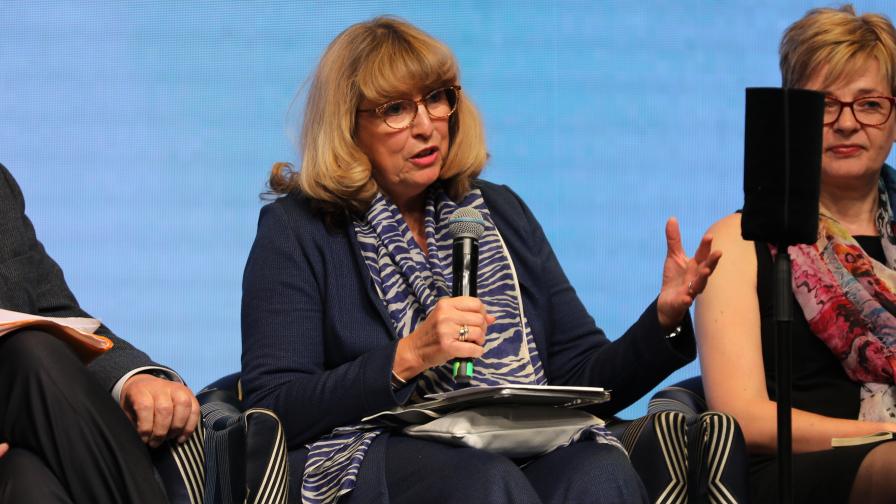
Noting the well-known impact of conflicts on the environment, Alain Le Roy, French Association for the UN and former UN Under-Secretary-General for Peacekeeping Operations, said the key is to reduce the number and intensity of conflicts.
Harry Verhaar, Head of Global Public and Government Affairs, Signify, noted his company’s commitments to achieve the SDGs and its work with local governments—“where the action is”—to get things done.
Steven Kukoda, Executive Director, International Copper Association, observed governments still do not take a balanced view of extractive industries.
Biao Yang, Secretary General, SEE Foundation, highlighted the Foundation’s work on greening supply chains and promoting low-carbon trade in China.
Dominic Waughray, Senior Advisor to the CEO, World Business Council on Sustainable Development, suggested sustainable development requires making circularity work at scale across borders and unlocking finance through the creation of a new asset class.
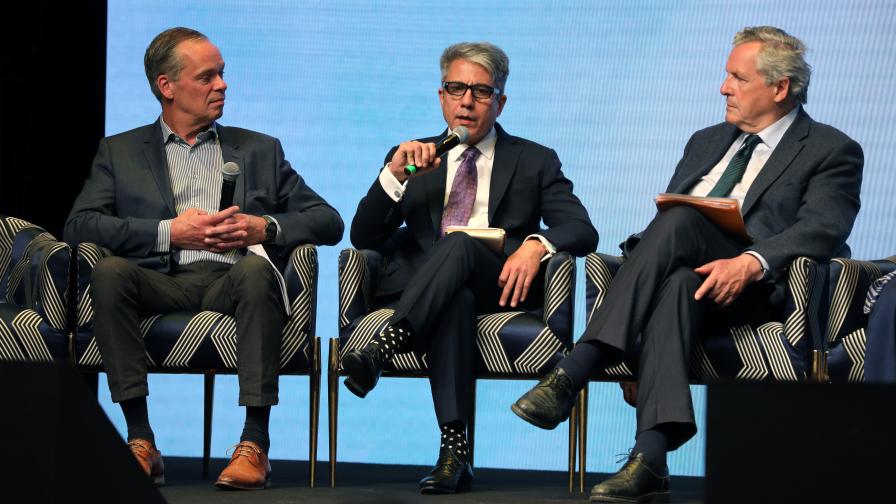
Future Economy
Christopher Hurst, Director General, European Investment Bank, said it is clear fossil fuel subsidies must be phased out.
Romina Boarini, Director, Centre for Well-being, Inclusion, Sustainability and Equal Opportunity, Organisation for Economic Co-operation and Development (OECD), provided an overview of how policy tools for well-being, as part of “beyond-GDP measurement,” are being used in governance and policy design.
Eric Usher, Head, UNEP Finance Initiative, said there is a need to regain purpose in the industry to move towards responsible banking.
Lee White, Minister of Water, Forests, the Sea and Environment, Gabon, demonstrated the political leadership Gabon has shown in becoming a carbon-positive country.
Carlos Manuel Rodriguez, CEO, Global Environment Facility (GEF), said strengthening institutions alone will not achieve sufficient change, but also requires agencies that work at the landscape and seascape levels.
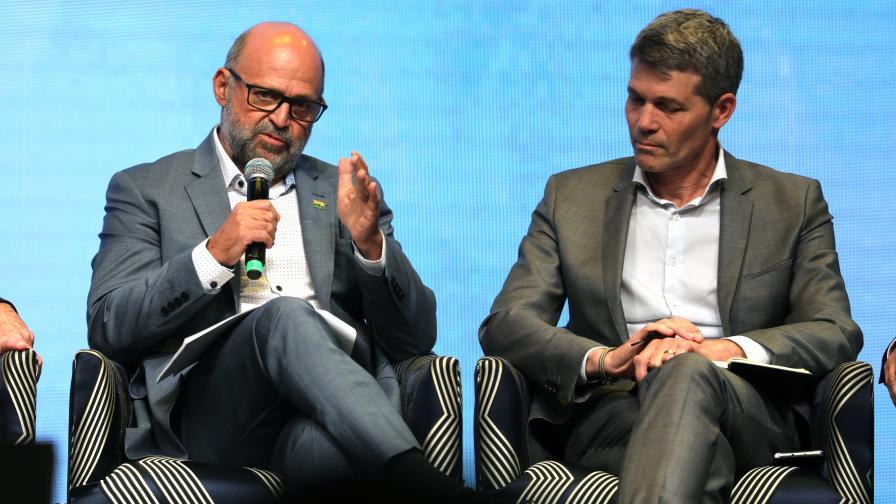
Paul Ekins, University College London, stressed the need for a system promoting clean, green finance.
Nicola Villa, Executive Vice President, Mastercard, noted his company’s work around achieving the SDGs, particularly on financial inclusion.
Lina Maria Montoya, Bancocolombia Group, spoke on Bancocolombia’s work to build sustainable cities and communities and promote financial inclusion and wellbeing.
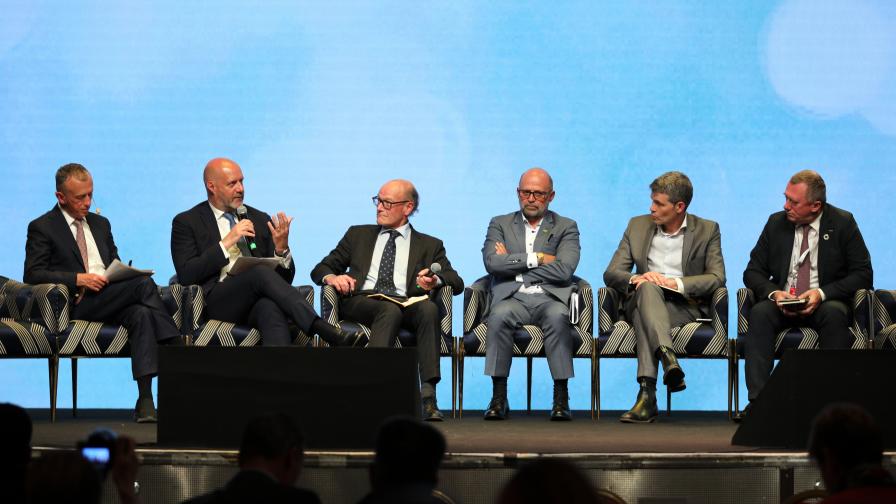
From L-R: Christopher Hurst, Director General, European Investment Bank; Nicola Villa, Vice President, Mastercard; Paul Ekins, Director of the Institute for Sustainable Resources, University College London; Carlos Manuel Rodriguez, CEO, GEF; Eric Usher, Head, UNEP Finance Initiative; and Lee White, Minister of Water, Forests, the Sea and Environment, Gabon
Big Tech for the Planet
Tshepo Tsheko, CEO, Botswana Digital and Innovation Hub, highlighted the continent’s rich biodiversity and human potential, calling for digital connectivity, capacity building, and empowerment through partnerships with big tech.
Hendrik Hamman and Christina Shim, IBM, presented on IBM’s strategies and activities for sustainability.
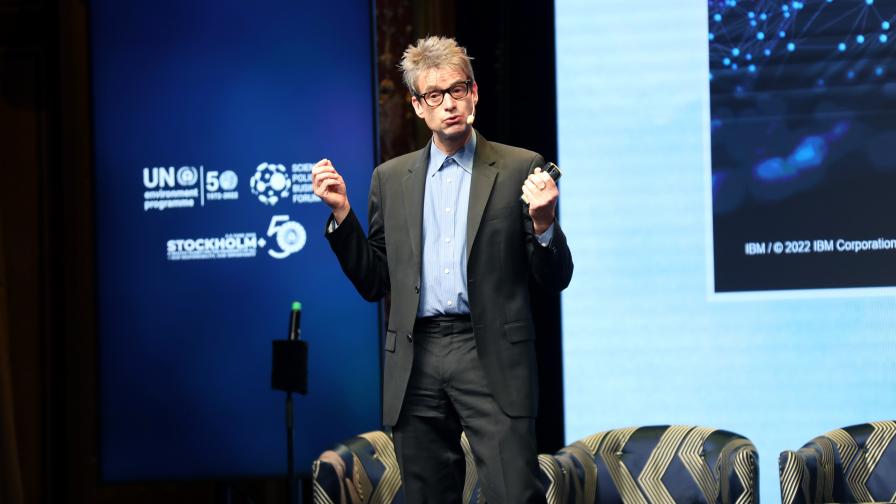
Paul Ekins noted that data is lacking for 68% of the environmental indicators of the SDGs.
Alexandre Caldas, UNEP, highlighted the need for building capacities to use technology, promoting partnerships, and using data to provide foresight and early warning.
Frederic Bretar, Space Climate Observatory (SCO), explained SCO seeks to collaborate on the use and validation of the wealth of Earth observation data to provide a clearer overview of climate change.
Kaja Tael, Ambassador at Large for Climate and Energy Policy, Estonia, said the Data for the Environment Alliance (DEAL) addresses the need for accessible, quality basic data on the environment that policymakers can base their decisions on.
Martin Brocklehurst, Chair, Interim Board, Citizen Science Global Partnership, urged governments and UNEP to engage more with citizen science.
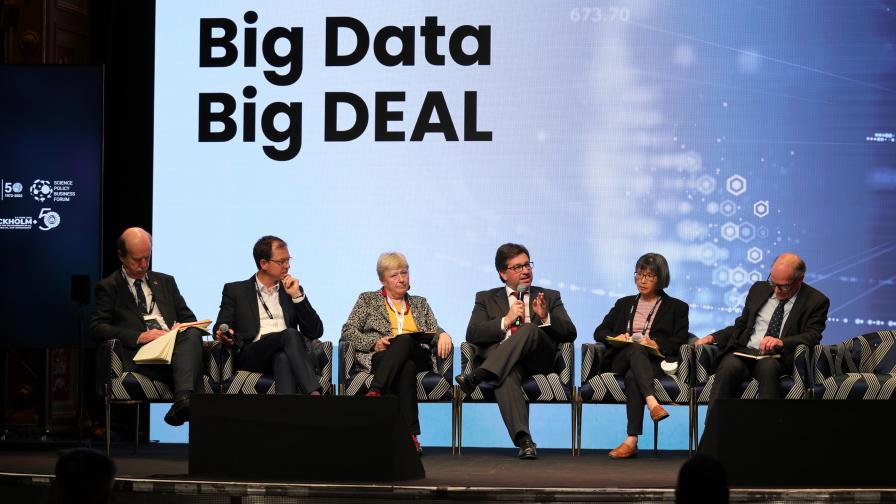
Edan Dionne, Vice President, IBM, reviewed the Responsible Computing framework.
Jonathan Lett, Director, Lett Holdings Ltd, Tommy Lexen, Managing Director, and artist John Munro discussed the digital audiovisual composition “50/50” that will be unveiled on Wednesday.
Anna Williams, Geo for Everyone, Google, explained EIE uses Google data sources and modeling capabilities in a freely available platform to help cities and regions to, among others, measure emission sources.
Trista Patterson, Microsoft, discussed the objectives of the Playing for the Planet Alliance bringing together 36 major video game companies to integrate green activations in games, reduce their emissions, and support the global environmental agenda.
Margaret O’Toole, Worldwide Tech Leader Sustainability, Amazon Web Services (AWS), said technology will be one of the key tools to help drive a sustainable transformation.
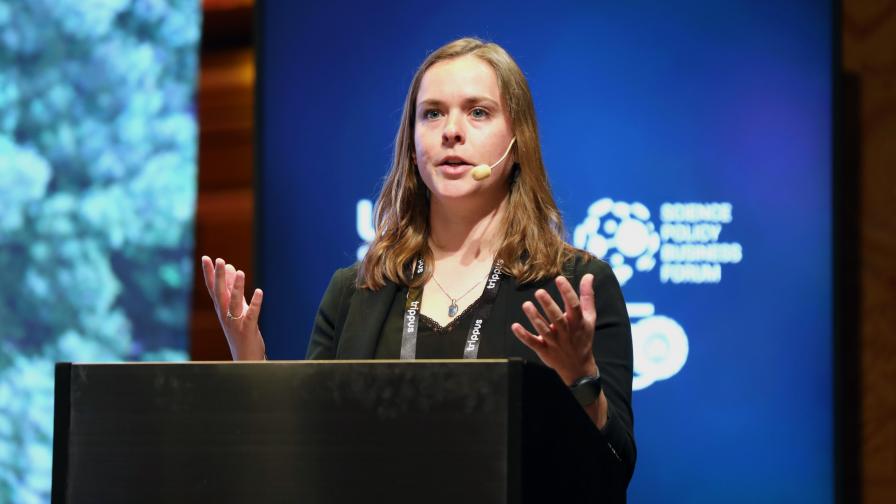
Sandra Karlsson, Head of Public Policy, Sweden AWS, said the twin transitions of digitalization and sustainability are mutually supportive.
Ana Pinheiro Privette, Global Lead, Amazon Sustainability Data Initiative, underscored the role of partnerships to disseminate and use data.
The Future of Energy
Rana Adib, Executive Director, REN21, said a system change is needed to end fossil fuels.
Howard Bevan, Former Director of Energy, Al-Attiyah Foundation, focused on Qatar’s efforts, including on natural gas, methane monitoring, and building a knowledge economy.
Gulnara Abdullina, LONGi Solar, stressed that solar applications in Europe need to co-exist with agricultural production.
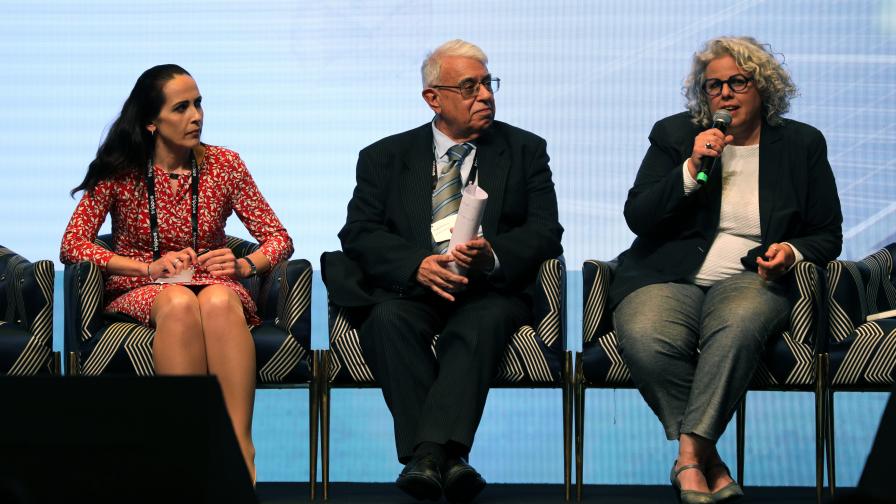
Espen Barth Eide, Minister of Climate and the Environment, Norway, noted there will be a significant space for clean hydrogen in the energy transition.
Barbara Jinks, International Renewable Energy Agency (IRENA), said Sub-Saharan African has the greatest potential for green hydrogen but lacks infrastructure, policies, and investment.
Asgeir Tomasgard, Norwegian University of Science and Technology Energy Transition Initiative, stressed the need to build the green hydrogen demand side at the same time as the supply side.
Per Sandberg, Equinor, called for focus on the entire hydrogen value chain, including distribution, storage, use, and safety.
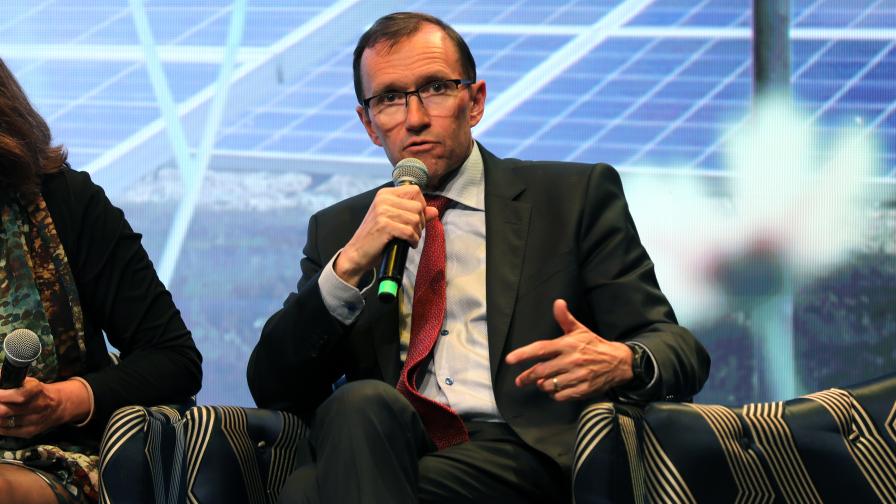
James Mnyupe, Presidential Economic Advisor, Namibia, presented on Namibia's green hydrogen production project as part of the economy’s industrialization and sustainable development.
Bjørn Simonsen, CEO, Saga Pure, underscored the need to combine industry expertise with finance.
Zhang Cunman, Professor, Tongji University, China, presented on China’s approach to green hydrogen as a path towards the energy transition.
A youth representative from Argentina drew attention to Equinor’s offshore seismic exploration in Argentina, which has caused major opposition from the public.
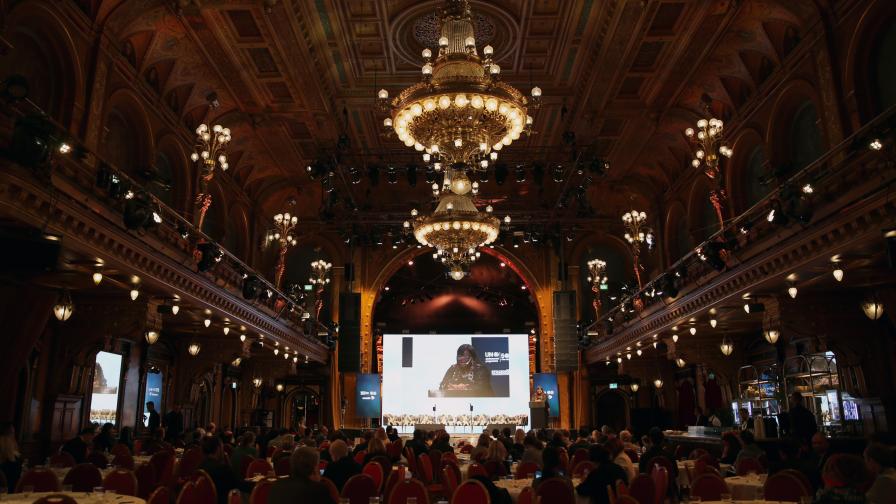
More information
Text + Photographs : Curtesy of IISD
The second and final day of the fourth Global Session of the UN Science-Policy-Business Forum (UN-SPBF 2022) was no less packed than day one. It tackled equally important issues, such as sustainable fashion and sustainable public procurement. Both of these affect fundamental parts of our daily lives and are important aspects of future sustainability.
The session then adopted a forward-looking approach, discussing expectations for the 27th meeting of the Conference of the Parties to the UN Framework Convention on Climate Change (UNFCCC COP27). UN-SPBF 2022 closed with a discussion on participants’ vision for the next 50 years, when Stockholm+100 will be held.
Opening of Day 2
Axel Threlfall, Thomson Reuters, underscored key messages from the first day, including on the urgent need to: deploy and finance the best technologies available to enable transition; make the multilateral system more effective; enhance collaboration across sectors; and create demand for sustainable products. Sonja Leighton-Kone, Acting Deputy Executive Director, UN Environment Programme (UNEP), stressed the world has the knowledge and policy tools, and needs to move into action.
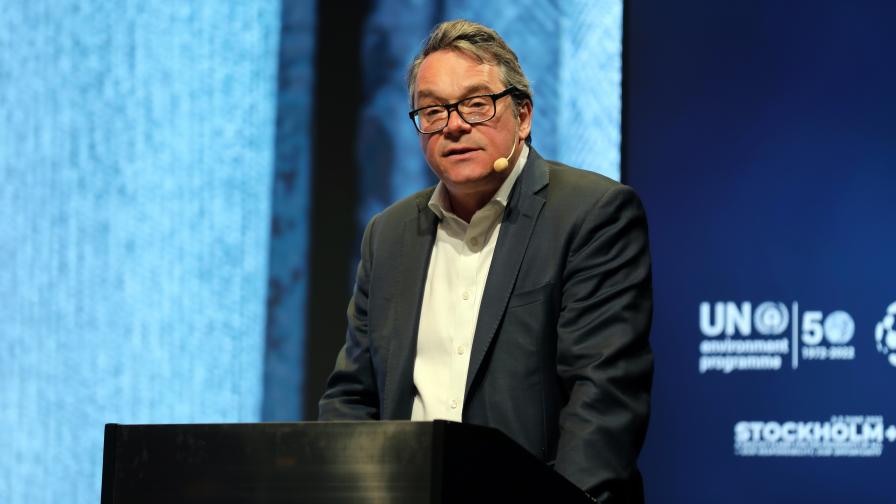
Nature-Positive Sector Transitions
Harry Verhaar, Signify, shared Signify’s experience regarding transition of the lighting sector towards more energy-efficient solutions, starting from the EU Ecodesign Directive and the phasing out of incandescent bulbs.
Sindiso Khumalo, designer, South Africa, drew attention to her company’s environmental and social standards and value-based efforts to ensure sustainable materials and fair labor.
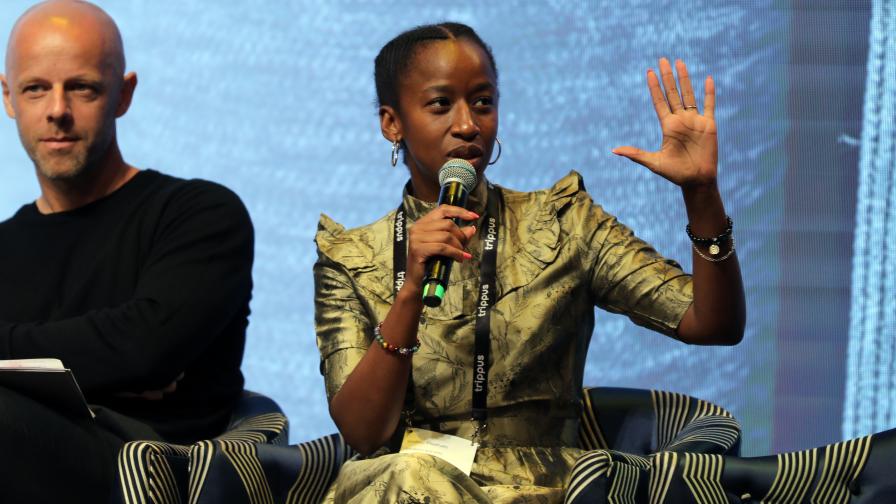
Alexandre Capelli, Moët Hennessy Louis Vuitton Group (LVMH), presented on efforts towards a more circular business model.
Cecilia Brännsten, H&M Group, suggested the company’s size allows for their actions to have an impact on the whole industry.
Kenneth Pucker, Tufts University, underscored that commitments need to be accompanied by consequences if missed, noting the need for a regulatory shift to move the entire industry towards sustainability.
Steven Kukoda, Executive Director, International Copper Association, said his industry is closely connected with the 2030 Agenda for Sustainable Development and critical to achieving the energy transition and Paris Agreement goals.
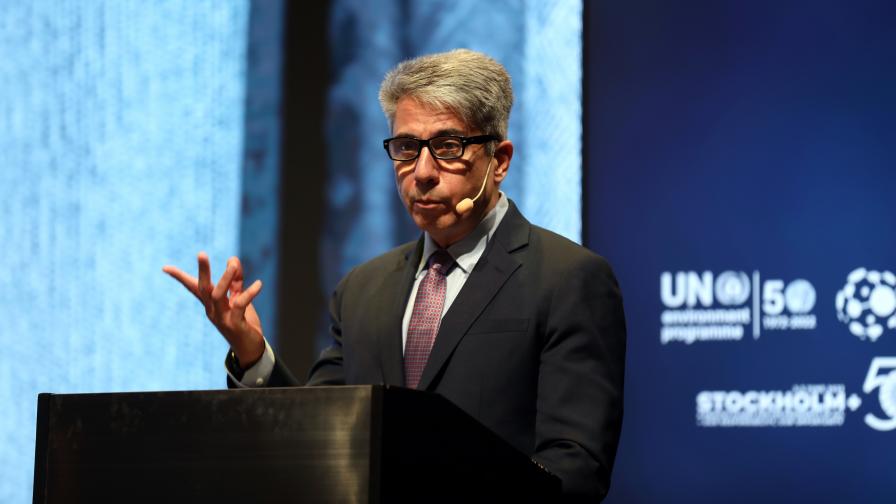
Sonja Leighton-Kone noted an International Energy Agency scenario showing that the clean energy transition will substantially increase demand for critical minerals such as copper, lithium, nickel, cobalt, manganese, and rare earths.
Bruno Oberle, Director General, International Union for Conservation of Nature (IUCN), cautioned greater mining of critical minerals must not increase greenhouse gas emissions or biodiversity loss, so all actors need to work together to ensure responsible mining.
John Howchin, Global Ambassador for the Global Tailings Management Institute, agreed that the Global Industry Standard on Tailings Management was a good example of how a voluntary initiative can take the lead that regulators will follow.
Accountability and Public Finance: Fast Tracking Sustainable Public Procurement
Caroline Nguyen, Council on Environmental Quality, US, announced the US Government will soon propose a regulation to require federal contractors to publicly disclose their climate emissions and climate risks, as well as plans to reduce both.
Sébastien Postic, I4CE, said many countries have rules on sustainable procurement, but lack strategies that cover matters such as what portion of procurement should be green.
Farid Yaker, UNEP, decried the lack of reliable data on procurement. He said UNEP is looking into how big data, AI, and other tools can improve measurement.
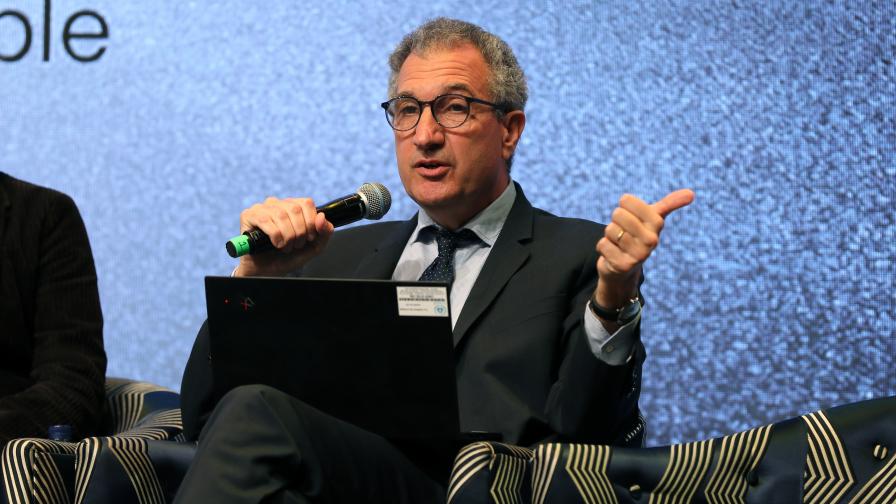
Paulo Magina, Organisation for Economic Co-operation and Development (OECD), noted a study showed that sustainable public procurement can help achieve 82% of the Sustainable Development Goals (SDGs).
Annie Stalberg, Swedish National Agency for Public Procurement, said to achieve success in sustainable public procurement, having an action plan that points out the direction and goal to reach politicians and organizations is essential.
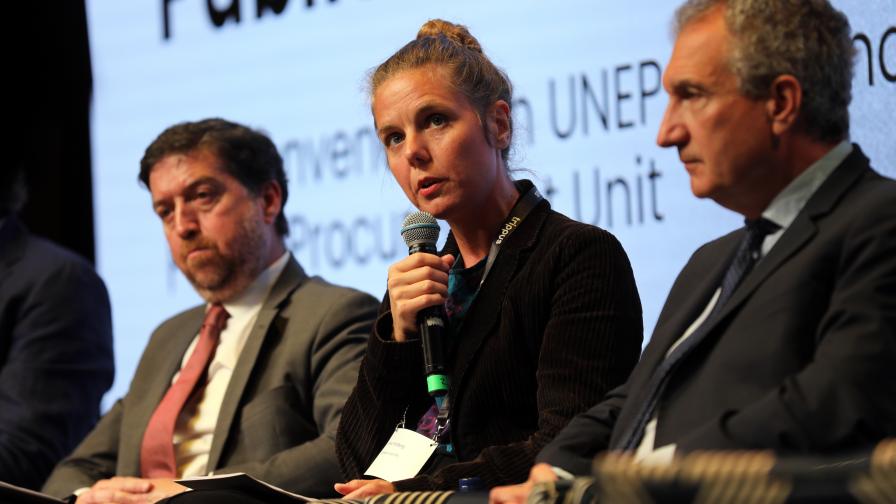
Pierre François Thaler, Co-Founder and Co-CEO, Eco Vadis, said sustainable procurement is about buying sustainable products from responsible suppliers.
The Next Climate COP: From Pledges to Action
Irene Feige, BMW Group, called for more Corporate Determined Contributions (CDCs) from multinational corporations.
Li Zhang, Director, Green Inclusive Carbon Neutrality Promotion Center, said consumer choice can drive big changes and have a positive impact on the environment.
Nina Ekelund, Executive Director, The Haga Initiative, urged “dancing with policy” to be able to set the right carbon price.
Annika Ramsköld, Vattenfall, urged for nationally determined contributions (NDCs) to be backed up by action and urged more discussion on the regulatory framework to enable the transition.
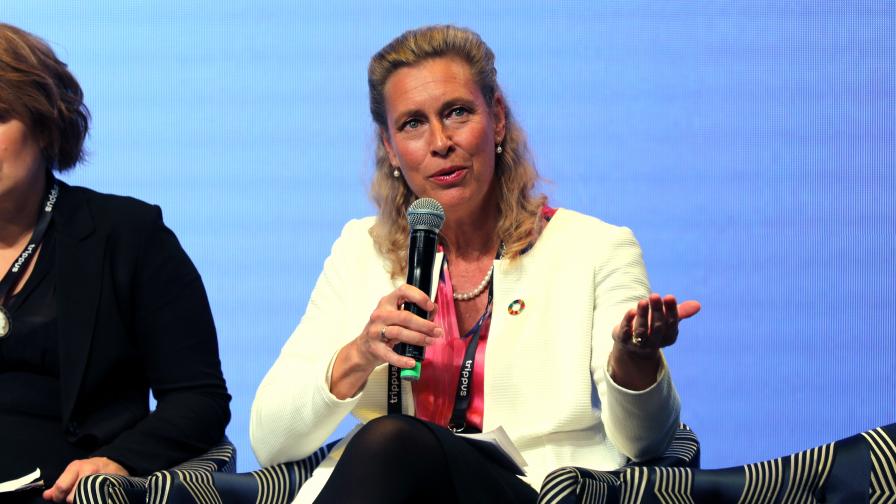
Vanessa Butani, Electrolux, called for constant conversations on making the business case for sustainability.
Collen Vixen Kelapile, President, UN Economic and Social Council (ECOSOC), said meaningful impact can only be realized if all the SDGs and associated targets are addressed equally.
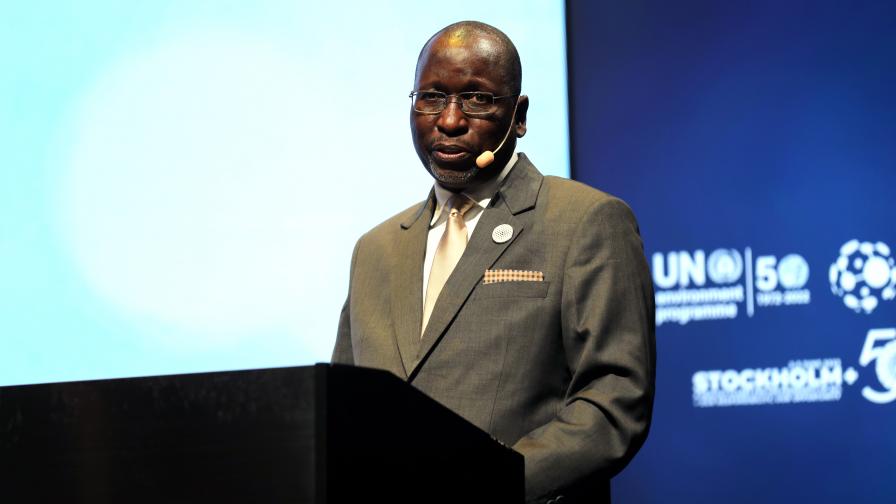
Stockholm +100: Shaping our Common Future
Maria Ivanova presented a letter signed by a group of scientists, published in Nature and on science4stockholm50.world, highlighting the need for: redefining what is good and enough for societies and individuals to thrive; recognizing both privilege and responsibility; and empowerment and collective action.
Collen Vixen Kelapile stressed: data tools to measure progress on the SDGs; strengthened multilateralism to overcome the development losses related to the COVID-19 pandemic and geopolitical tensions; and honoring financial commitments.
Niklas Gustafsson, Volvo Group, underscored the need for a price on carbon accompanied by smart policies.
Hilde Røed, Equinor, focused on her company’s development of offshore wind technologies as part of their commitments for low-carbon solutions.
Bertrand Piccard, Solar Impulse Foundation, suggested technological solutions to environmental problems are economically profitable and can, therefore, be successfully applied.
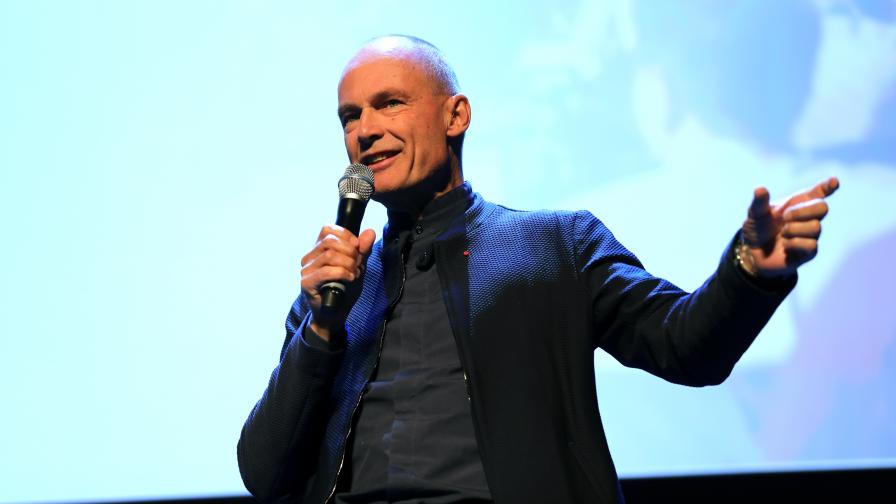
Pernilla Halldin, H&M, underscored the impact of regulation and of collaborations.
Jakob Kiefer, ABB Group, highlighted collaboration, as well as saving wasted energy, informing consumer behavior, addressing sustainable supply chains, and supporting a multilateral trade system.
Rana Adib, Ren21, called for spaces where stakeholders can develop joint understandings and narratives, highlighting the enabling role of policy and education.
John Streur, President & CEO, Calvert Research and Management, called for more robust corporate disclosure about environmental impacts and market pricing of all their externalities, not just carbon emissions.
Steven Kukoda urged companies to move beyond what they are forced to do by regulations and standards and focus instead on what needs to get done to advance the SDGs.
Lee George Lam, Chairman, Hong Kong Cyberport, called for the Asia-Pacific region to adopt a green deal and seek green transformation, with business leading the mobilization and working cooperatively with governments and communities.
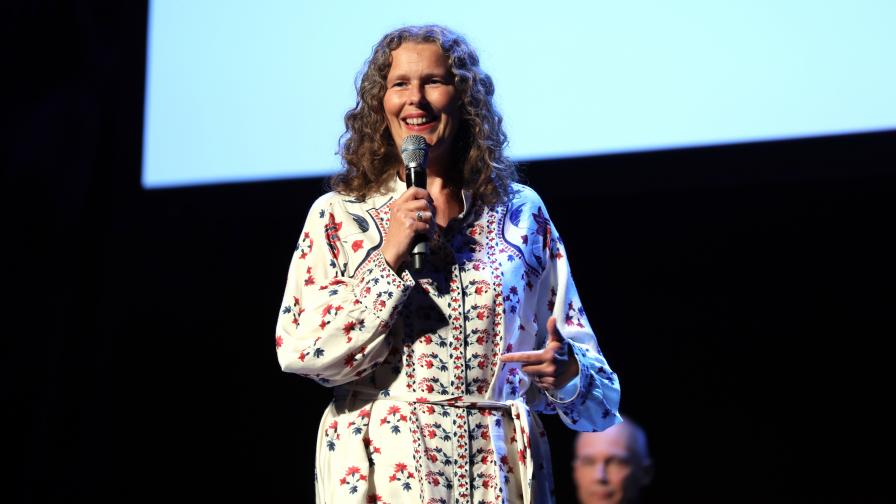
Li Zhenguo, Founder and President, LONGi, urged developing countries to formulate and improve policies and roadmaps for a clean energy transition as soon as possible.
Kaja Tael, Ambassador at Large for Climate and Energy Policy, Estonia, predicted we will all live in a renewable energy world in 20 years.
Civil society and youth representatives called for more engagement with major groups, underscoring the many contributions they can make during multilateral negotiations and in other fora.
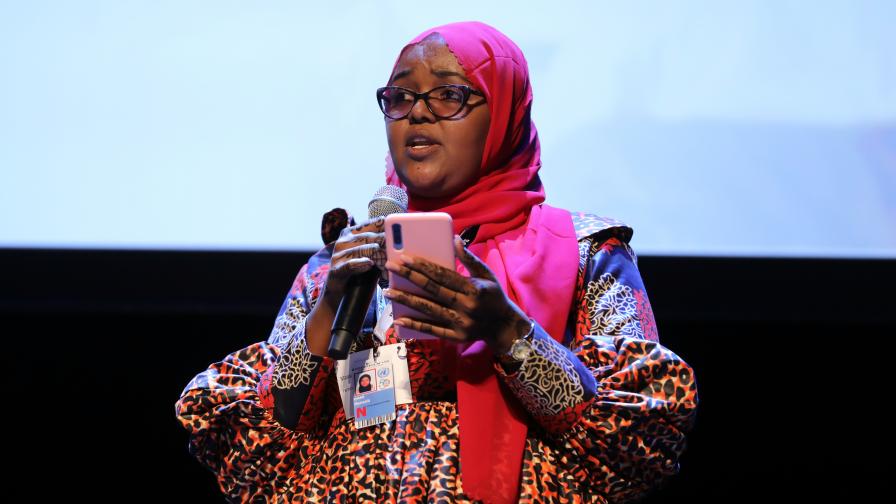
Concert for Peace and the Planet
In the evening, participants attended the unveiling of the immersive digital artwork ‘50/50,’ and attended the Concert for Peace and the Planet, featuring singer Ellie Goulding and Ricky Kej, multiple Grammy Award-winning Indian composer.

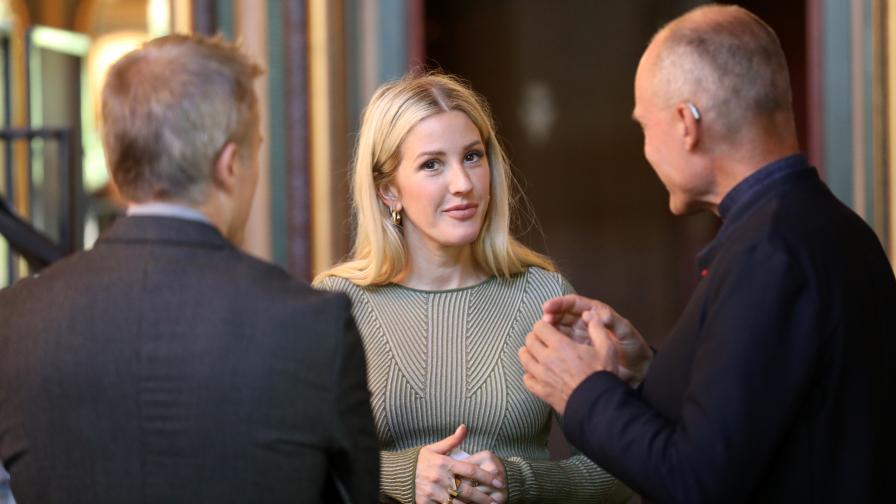
More information
Text + Photographs : Curtesy of IISD
Events at Kungsträdgården
Concert for Peace and the Planet
On the eve of Stockholm+50, TRANSFORMERS innovation exhibition was celebrated by Concert for Peace and the Planet, which will also ring in the start of World Environment Day worldwide.
TRANSFORMERS provides for an immersive experience using the latest digital arts and technologies.
Performing was the renowned multi Grammy Award-winning composer Ricky Kej.
![]()

Photo by IISD/ENB
![]()
Transformers Exhibition
The UN SPBF also launched the TRANSFORMERS exhibition at Kungstagarden in Stockholm on 1 June. TRANSFORMERS is a technology and innovation exhibition to celebrate art, innovation and technology for the planet. It provides for an immersive experience using the latest digital arts and technologies
![]()
![]()
![]()
Digital Artwork 50/50
Acclaimed experiential artist John Munro presented a major new digital art installation, 50/50 to mark a historic moment in the history of climate and environmental action. The digital artwork was created in partnership with the UN Science-Policy-Business Forum (SPBF) and art patron Jonathan Lett, and produced by Immersive International.
Featuring an audio composition by sound artist Giovanni Agusta, Munro created 50/50 using digital ‘living’ virtual landscapes and sculptural abstracted forms as a canvas for datasets that illustrate the achievements and positive impact of the UN’s Environmental Programme in Key Biodiversity Areas over the past five decades.
It was unveiled by Sonja Leighton-Kone, Acting Deputy Executive Director of UNEP and H.E. Collen Vixen Kelapile, President of United Nations Economic and Social Council (ECOSOC).
![]() Photo: Immersive International Ⓒ 2022
Photo: Immersive International Ⓒ 2022
![]() Photo: Immersive International Ⓒ 2022
Photo: Immersive International Ⓒ 2022
![]() Photo: Immersive International Ⓒ 2022
Photo: Immersive International Ⓒ 2022
![]() Photo: Immersive International Ⓒ 2022
Photo: Immersive International Ⓒ 2022
![]() Photo: Immersive International Ⓒ 2022
Photo: Immersive International Ⓒ 2022
![]() Photo: Immersive International Ⓒ 2022
Photo: Immersive International Ⓒ 2022
![]()
![]()
![]()
The Stockholm+100 Journey Starts Now
The Transformers 1: The Stockholm+100 Journey Starts Now event explored the how trailblazing nature-positive actions have the potential to create a better future for all. It discussed the solutions and innovations with which to power these transitions and what enabling conditions are required to realize this journey. It also looked at issues of accountability, equity, inclusion, and justice as the backbone to this transformation.
The event took place on 2 June 2022 as part of the Multi-Stakeholder Action Hub in Stockholmsmassän, the Stockholm+50 venue.
![]()
Helena Helmersson CEO, H&M Group
![]()
Jakob Kiefer Head of Public Affairs, ABB
![]()
Tanvi Mishra, Youth Representative; H.E. Collen Vixen Kelapile, President, UN Economic and Social Council; Helena Helmersson, CEO, H&M Group; Shereen Zorba, Head of Global Secretariat UN-Science Policy Business Forum and Jakob Kiefer, Head of Public Affairs, ABB
Women in Sustainability
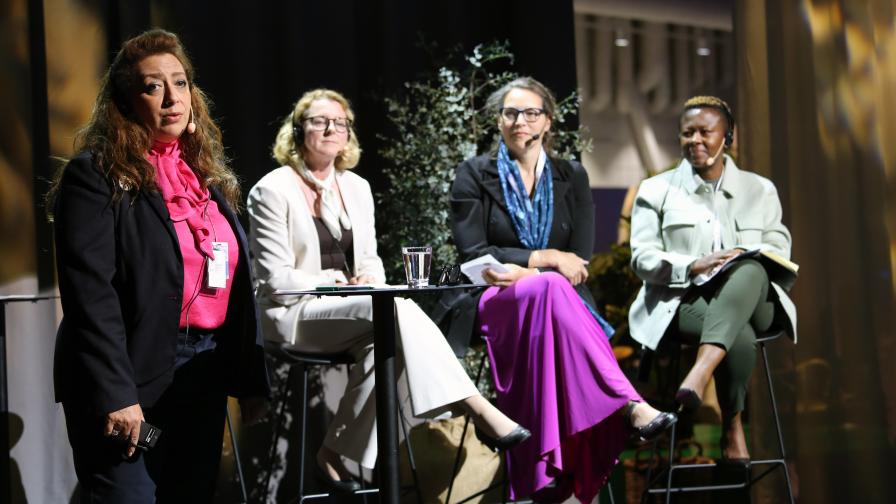
This event featured: Karin Svensson, Chief Sustainability Officer, Volvo Group; Cookie Phirinyane, Acting Director for Marketing and Partnerships, Botswana Digital & Innovation Hub; Trista Patterson, Director of Gaming Sustainability, Microsoft Voices of Youth; and youth representative Selma Bichbich. It was moderated by Shereen Zorba, Head of the Global Secretariat, UN Science-Policy-Business Forum for the Environment.
Karin Svensson, Chief Sustainability Officer, Volvo Group
Svensson presented on “Accelerating Value Chain Innovation and Doubling the Speed of Progress.” She addressed Volvo’s efforts towards sustainability, including on electric vehicles and a partnership to develop a charging network, replacement of materials to move towards fossil-free steel, and participation in the First Movers Coalition, which uses purchasing commitments to accelerate the deployment of near zero and net zero technological solutions. She highlighted the need for incentives, carbon pricing, scaling up solutions, and partnerships, to reach entire value chains and share the risk of innovation.
Cookie Phirinyane, Acting Director for Marketing and Partnerships, Botswana Digital and Innovation Hub
Drawing attention to the Glasgow Women’s Leadership Statement on Gender Equality and Climate Change, Zorba opened discussions on “Women in Green Tech: Smashing Glass Ceilings for the Planet.” Phirinyane, Patterson, and Svensson shared their personal stories, and discussed barriers for women and their experience in male-dominated sectors, the privilege of growing up unaware of gender barriers, and the importance of mentors and role models. Patterson drew attention to systemic bias against women in many sectors and trainings towards change. To fight inequalities, Phirinyane prioritized: access to education; access to funding; and a policy shift, both to address inequality and to include more women in policymaking.
Trista Patterson, Director of Gaming Sustainability, Microsoft Voices of Youth
Bichbich urged empowering youth to lead and turn their recommendations into real action and cautioned against excluding the Global South, adding that the youth “will be creating the new UN.”
More coverage here.
Text + Photographs : Courtesy of IISD
Stockholm Marathon
The Stockholm Marathon (4 June) came at a very special time this year, marking 50 years of environmental action. This year's World Environment Day Edition of the Stockholm Marathon was in partnership with the United Nations Science-Policy-Business Forum.
At the start of the race, the runners were cheered by a speech of His Excellency, Collen Vixen Kelapile, President of UN Economic and Social Council (ECOSOC).
![]()
![]()
![]()